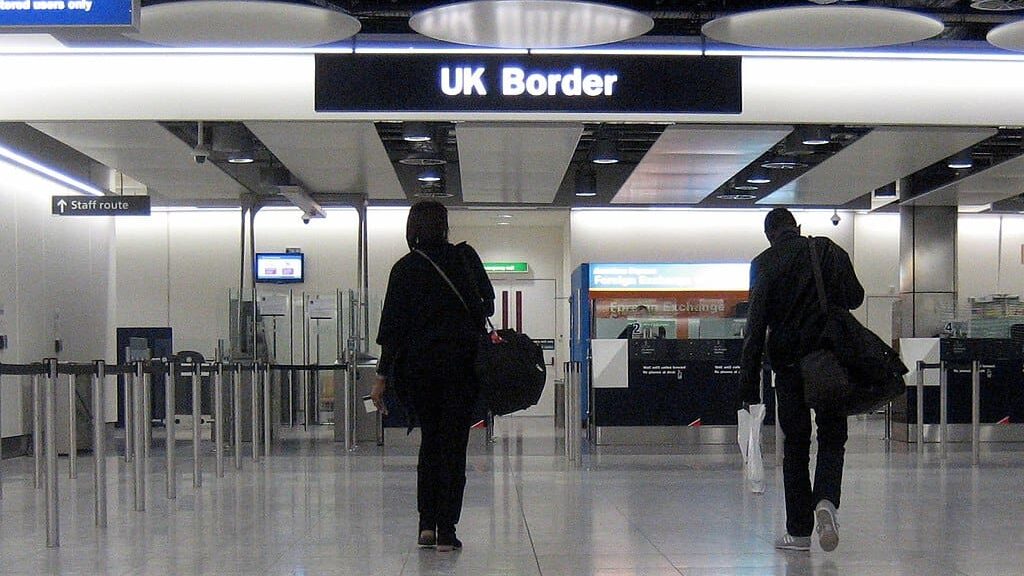
Photo: dannyman, CC BY 2.0, via Wikimedia Commons
The time for empty talk about net migration being brought down to the “tens of thousands” is over. After it was revealed that more than 1.2 million people arrived legally into Britain last year, around half of Britons have said they want to see a freeze on all “non-essential” immigration.
💥Exclusive: Half of British voters want to freeze all non-essential immigration.
— Centre for Migration Control (@migrationCtrl) May 26, 2024
Two-thirds of the public want to see immigration cut to at least the tens of thousands.💥
Legal immigration must be at the centre of the general election debate. pic.twitter.com/5b5BPwfY80
That is according to new polling for the Centre for Migration Control think tank, whose research director, Robert Bates, told The European Conservative:
The British public has clearly had enough of the mass migration agenda that has been foisted upon them by successive Conservative and Labour governments.
We require a serious national debate to work out exactly how we can unravel a lot of the damage being caused by a level of net migration that is now running at well over half a million people each year.
The demand for a freeze on most legal migration should, said Reform UK leader Richard Tice, “be at the centre of this election debate.” Conservative journalist Steven Edginton agreed that it ought to “define the election campaign.”
Half of British voters agree with @reformparty_uk policy to freeze all non essential immigration
— Richard Tice 🇬🇧 (@TiceRichard) May 27, 2024
This must be at centre of this election debate https://t.co/Xt1HZ4LmNd
A new @migrationCtrl poll found 49% of Brits want a total freeze on immigration, including 75% of Tory voters.
— Steven Edginton (@StevenEdginton) May 26, 2024
This should define the election campaign. https://t.co/TRpbTMiNut
If there was a genuine interest in the subject within the established political class, this poll could prompt a serious discussion on the length of time a legal migration freeze could run for, and on which migrants count as “essential.”
Indeed, Alp Mehmet, who is chairman of the Migration Watch UK think tank, told this publication that the polling “underlines what the vast majority of the public have long thought—that immigration has been too high for years and must be drastically reduced.”
The next government must take heed and urgently put in place policies that will deliver net migration as close to zero as possible. The only way that will happen is with a cap on immigration.
But it is fairly certain that whether the July 4th election is won by the Conservatives or—as is far, far more likely—Labour, Britain’s borders will continue to be as uncontrolled as they have been over the past two decades. Labour may have launched this period of mass migration, due in part to its desire to “rub the Right’s nose in diversity,” but there is no reason to believe that it is about to bring it to an end.
Bates, from the Centre for Migration Control, added that “the fact this general election has not focused on immigration—at all—is testament to the fact that the Labour Party and the Conservative Party are both satisfied with the current status quo.”
This radical experiment has caused untold damage but the Labour Party refuses to admit that the housing crisis, the health crisis, the education crisis might be the result of a huge swell in the size of the population.
The same set of polling results suggests that voters agree that neither of the two main parties is ready to target the issue head on. Just 12% of the respondents said they believe Labour leader Sir Keir Starmer will bring numbers down. The figure is even lower for Tory leader Rishi Sunak, standing at a meagre, single-digit nine percent.
